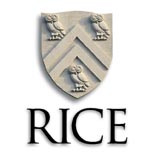Excerpt From Hewitt’s Letter to the Chronicle of
Higher Education
My work with graduate students in thesis-writing classes and
in workshops has convinced me that they are desperate to learn how
to avoid plagiarism and its consequences. They need models that show
what is or what is not plagiarism; they need practice in paraphrasing
and citation.
Even conscientious advisers often underestimate the difficulties of writing a
literature review, with its demands for precise delineation, comparison, and
attribution. Special problems arise when a student must incorporate a coauthored
published paper into a thesis.
To meet those challenges, we must give graduate students opportunities to learn
by doing. |
|
Personal Statement Tips:
- When writing your personal statement, begin with who you are
now, not your childhood self. Awards aren’t given because
a candidate dreamed of being an astronaut.
- Avoid laundry lists of your qualities. Naming a few key qualities
and backing them with examples will persuade readers.
|

CPTSC Posters Shine
The Council for Programs in Technical and Scientific Communication met in
San Francisco in October. Linda Driskill, who is a member of the CPTSC
Executive Committee, planned the poster portion of the conference program.
The organization has been formulating new standards for posters about communication
issues. The pattern of organization used in scientific posters often is
not relevant for displaying complex connections between curriculum issues
or showing evidence/data that is primarily visual in nature, such as diagrams,
photos, or examples to generate discussion. Last year’s conference
participants spent one session working to define the features of this genre,
and this year’s session proudly displayed excellent examples. Linda
Driskill and Rebecca Burnett (Iowa State) presented a poster that demonstrated
the new guidelines and featured a sample design. The Cain team provided
advice on addressing this complex “poster within a poster” design
problem.

Odell Visits from Rensselaer
Polytechnic
Professor Lee Odell of RPI
spent October 8th with Cain faculty and Rice administrators discussing
assessment and research in writing across the curriculum. As a national
leader in communication assessment, Odell emphasizes the importance
of using assessment methods that provide guidance for both students
and faculty. His years of leadership in communication research also
make him a valuable resource for Cain Project faculty who are planning
a coordinated set of projects during the Project’s last two
years. To facilitate the program’s development Odell has visited
the Project periodically since the grant began. His first workshop
for graduate students in 1998 filled Physics 212—there was
not a single empty seat. |
The Cain Project in Engineering
and Professional Communication helps Rice students become expert
speakers and writers. Because of the Gordon and Mary Cain Foundation’s
generous gift, undergraduate and graduate students in science
and engineering are developing the communication skills necessary
for successful professional leadership.
Linda Driskill,
PhD
Tracy Volz, PhD
|
|
Director
Assistant Director |
Rice
University
PO Box 1892 - MS-340
Houston, TX 77251-1892
Phone: (713) 348-6141
Fax: (713) 348-6175
Email: cainproj@rice.edu
|
|
![]()

